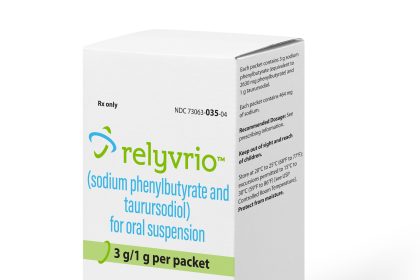FDA Approves New Antibiotic for Three Different Uses

WASHINGTON — The Food and Drug Administration on Wednesday approved the drug Zevtera for the treatment of adults with certain bloodstream infections, those with acute bacterial skin and skin structure infections, and adult and pediatric patients 3 months to less than 18 years old with community-acquired bacterial pneumonia.
Zevtera’s efficacy in treating each of the conditions was evaluated in a randomized, controlled, double-blind, multinational, multicenter trial.
In the Staphylococcus aureus bloodstream infections trials, researchers randomly assigned 390 subjects to receive Zevtera or daptomycin plus optional aztreonam.
The primary measure of efficacy for this trial was the overall success at the post-treatment evaluation visit, which occurred 70 days after being randomly assigned an antibiotic.
A total of 69.8% of subjects who received Zevtera achieved overall success compared to 68.7% of subjects who received the comparator.
In the trial looking at Zevtera’s efficacy in treating adults with acute bacterial skin and skin structure infections, researchers randomly assigned 679 subjects to receive either Zevtera or vancomycin plus aztreonam, the comparator.
The primary measure of efficacy was early clinical response 48-72 hours after start of treatment.
Early clinical response required a reduction of the primary skin lesion by at least 20%, survival for at least 72 hours and the absence of additional antibacterial treatment or unplanned surgery. Of the subjects who received Zevtera, 91.3% achieved an early clinical response within the necessary time frame compared to 88.1% of subjects who received the comparator.
In the final trial, testing Zevtera’s efficacy in treating adult patients with community-acquired bacterial pneumonia, researchers randomly assigned 638 adults hospitalized with CABP and requiring IV antibacterial treatment for at least three days to receive either Zevtera or ceftriaxone with optional linezolid, the comparator.
The primary measurements of efficacy were clinical cure rates at test-of-cure visit, which occurred 7-14 days after the end of treatment.
Of the subjects who received Zevtera, 76.4% achieved clinical cure compared to 79.3% of subjects who received the comparator.
An additional analysis considered an earlier point of clinical success at day three, which was 71% in patients receiving Zevtera and 71.1% in patients receiving the comparator.
Given the similar course of CABP in adults and pediatric patients, Wednesday’s approval of Zevtera in pediatric patients 3 months to less than 18 years with CABP was supported by evidence from the CABP trial of Zevtera in adults and a trial in 138 pediatric subjects 3 months to less than 18 years of age with pneumonia.
For adults with SAB, the most common side effects of Zevtera included anemia, nausea, low levels of potassium in the blood (hypokalemia), vomiting, diarrhea, increased levels of certain liver tests (hepatic enzymes and bilirubin), increased blood creatinine, high blood pressure, low white blood cell count (leukopenia), fever, abdominal pain, fungal infection, headache and shortness of breath (dyspnea).
For adults with ABSSSI, the most common side effects of Zevtera included nausea, diarrhea, headache, injection site reaction, increased levels of hepatic enzymes, rash, vomiting and altered taste (dysgeusia).
For adults with CABP, the most common side effects of Zevtera included nausea, increased levels of hepatic enzymes, vomiting, diarrhea, headache, rash, insomnia, abdominal pain, vein inflammation (phlebitis), high blood pressure and dizziness. For pediatric patients with CABP, the most common side effects of Zevtera included vomiting, headache, increased levels of hepatic enzymes, diarrhea, infusion site reaction, vein inflammation (phlebitis) and fever.
The FDA says patients should not use Zevtera if they have a known history of severe hypersensitivity to ceftobiprole or any of the components of Zevtera, or other members of the cephalosporin antibacterial class.
Dan can be reached at [email protected] and @DanMcCue

























